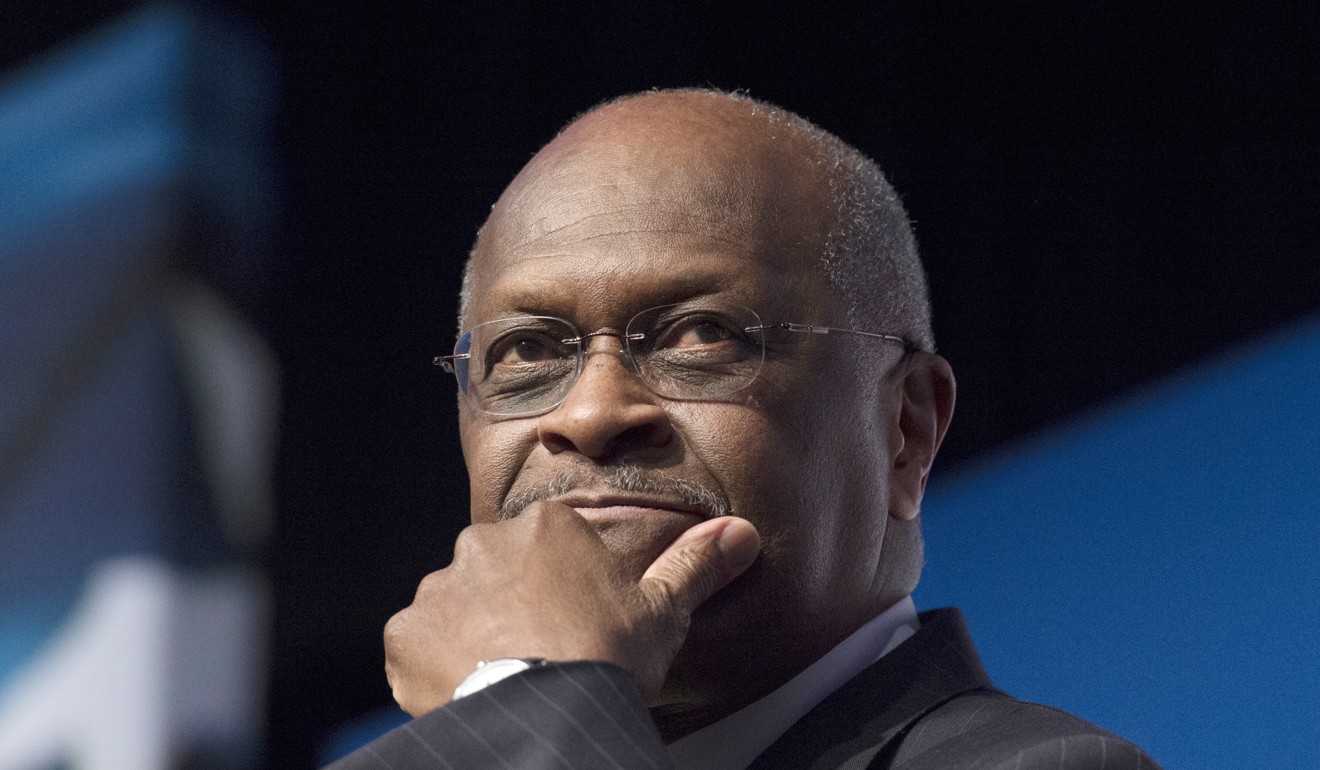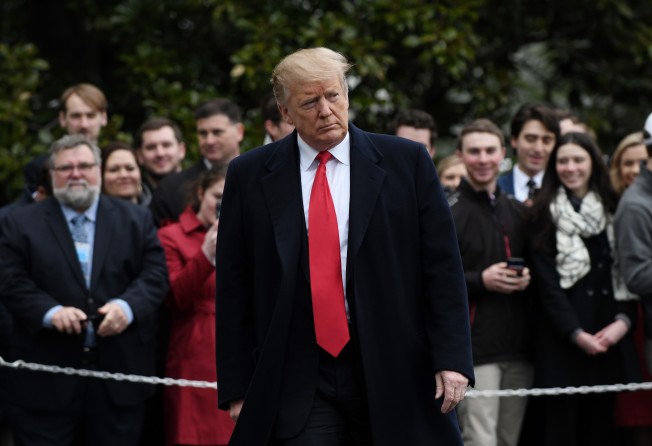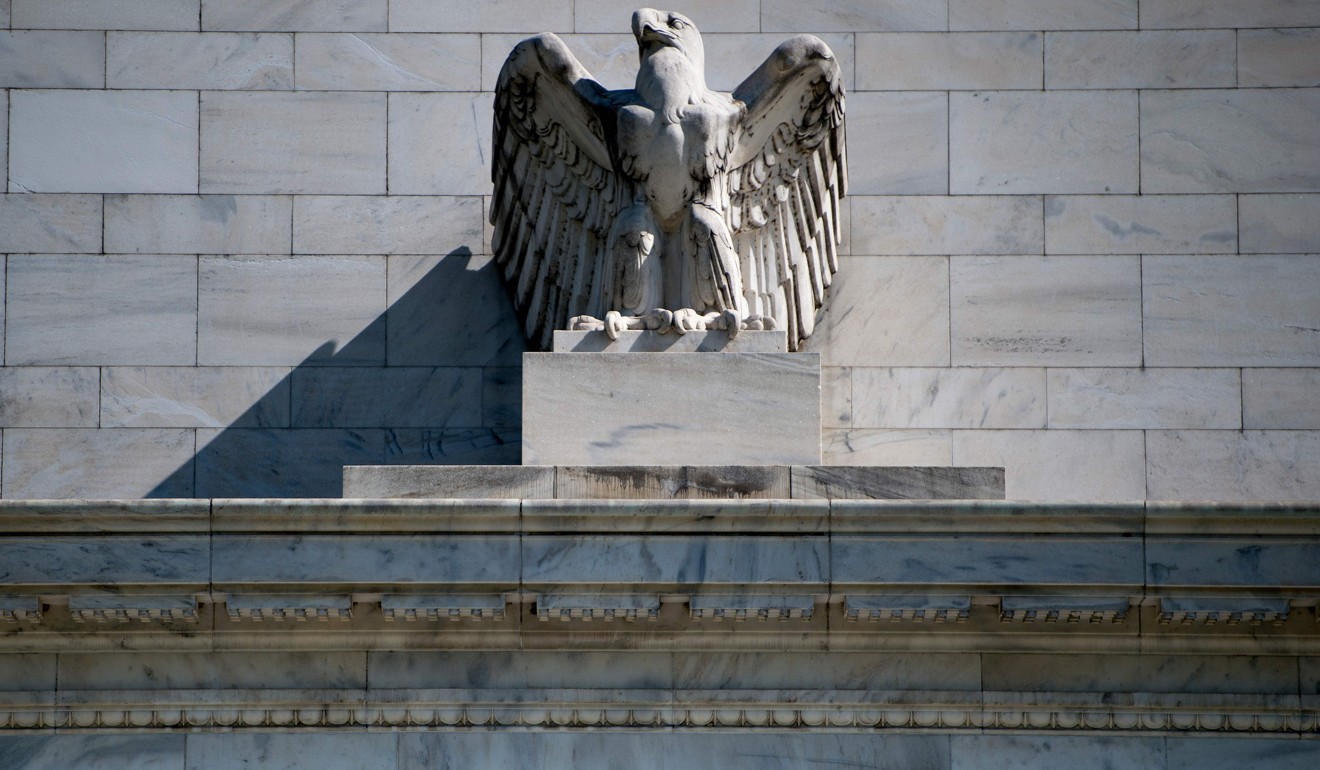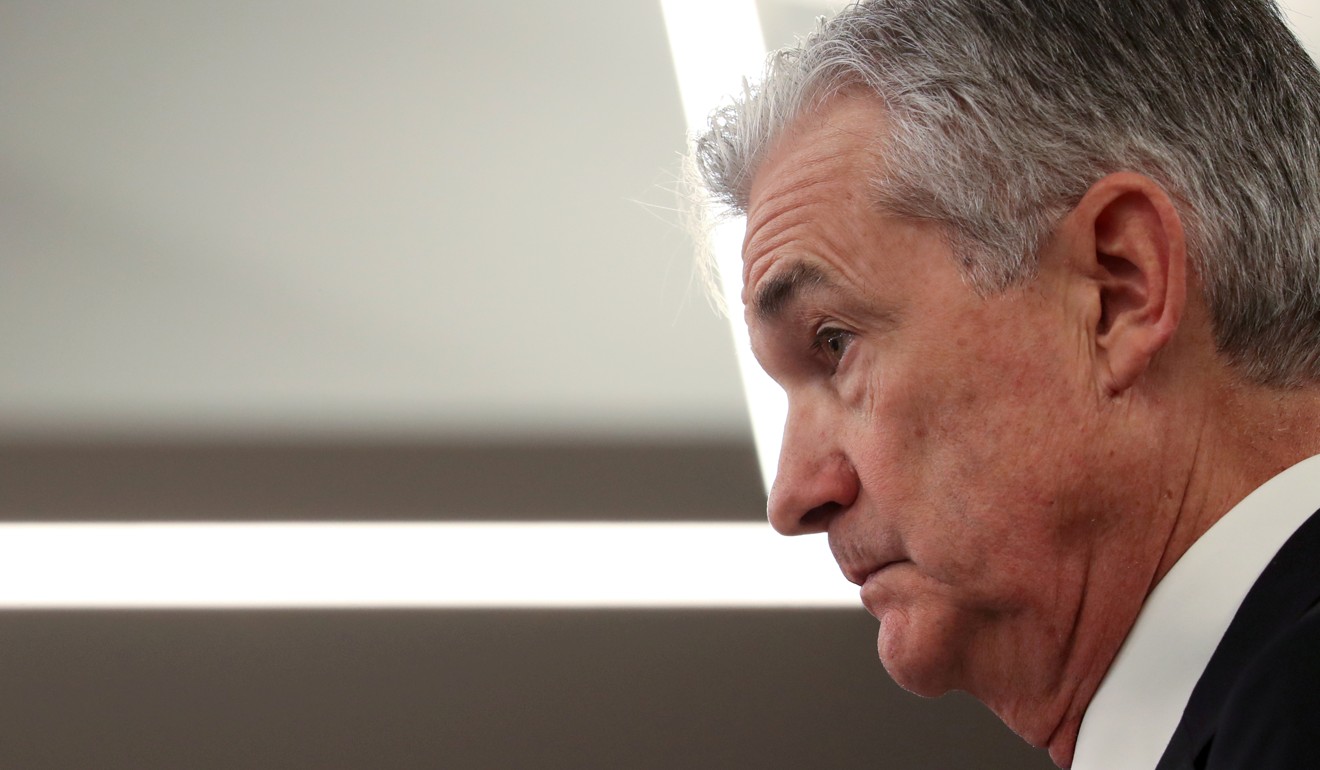
Donald Trump’s Fed threats meet a firewall: Republican lawmakers
- The US president has railed against the nation’s central bank for removing the extraordinary economic support put in place during the last recession

This story is published in a content partnership with POLITICO. It was originally reported by Victoria Guida on politico.com on April 8, 2019.
Republican lawmakers have given in to US President Donald Trump on almost every contentious issue, but they're quietly breaking from him on one front that has drawn the president's repeated ire: the Federal Reserve.
Trump is pushing two celebrity Republicans and Fed critics – Herman Cain and Stephen Moore – to join the central bank's board in his bid to shake and shape the institution in Trumpian ways.
He has called on the Fed to slash interest rates despite strong economic growth. And he has railed against the central bank for removing the extraordinary economic support put in place during the last recession.
It may force congressional Republicans into playing an unusual role: rebelling against Trump.
Republican lawmakers – who often showed little restraint in lambasting the Fed for near-zero interest rates in the Obama era – are signalling publicly and privately their intent to keep politics out of the central bank.

They generally support Chairman Jerome Powell, and many have expressed opposition to serious political meddling in setting rates.
The lawmakers plan to press Trump nominees about their allegiance to the Fed’s data-based approach, amid concern that the president wants the central bank to pursue policies that will goose the economy.
“The Fed generally has more information than we have,” said Republican Senator Richard Shelby, a key member of the Senate Banking Committee, which has jurisdiction over the Fed and would have to vet the nominations of Moore and Cain.
How the US Federal Reserve is financing climate change by taking its cue from modern monetary theory
Appointments to the Fed are the president’s main avenue for moulding the institution, and Trump’s selection of two overt political allies has raised alarms that he’s ramping up his efforts to influence monetary policy.
Economists worry that Moore and Cain could erode the Fed’s political independence by focusing on the president’s re-election prospects rather than on what’s best for the long-term health of the economy.
Both Moore and Cain have close ties to the president.

Moore was an adviser to the Trump campaign and regularly defends the president’s agenda on TV, including his accusations that the Fed is standing in the way of economic growth.
He once suggested the central bank be abolished and has called for Powell to be fired. Cain last year launched a pro-Trump super PAC and has praised the president’s “bold and transformative trade policies” for boosting the economy.
“This is now a trend,” said Ian Katz, an analyst at Capital Alpha Partners.
“These guys are more political than the typical Fed nominee. … Cain has a [super] PAC whose express mission is to defend the president.”
Both men strongly supported increasing interest rates during the Obama administration to “normalise” monetary policy, even when economic growth was slower than it is now.
Both now ardently back Trump’s call for lower rates.
Trump upped that call on Friday by telling the central bank to cut rates and to restart the bond-buying programme it launched during the recession so it can turn the economy into “a rocket ship”.
But interviews with numerous influential Republicans in the Senate and House show an overwhelming faith in the Fed under Powell, who was confirmed by the Senate in January 2018 in an 84-13 vote – one of the biggest margins for a key Trump nominee.
“I leave interest rate decisions to the Federal Reserve,” said Republican Senator Jerry Moran.
“I think the administration is concerned about growth and has every right to weigh in on what they think our monetary policy should look like, but I would say I support an independent Fed and for the Fed to do what they see as appropriate,” Republican lawmaker Sean Duffy said.

Powell is a familiar presence on Capitol Hill, logging nearly 100 meetings and phone calls with lawmakers last year, far more than his predecessor.
When reports surfaced in December that Trump was considering firing Powell over a rate increase that month, senior Republicans including Senate Banking Chairman Mike Crapo and Senator Pat Toomey said the Fed chief did not deserve to be fired.
“After a long and dangerous experiment in monetary policy, conducted by others, Chairman Powell has gone a long way to restoring normalcy,” Toomey said at the time.
“We should be grateful for that.”
At the same time, Republican senators have shown no sign of opposing Moore, with many citing the benefit of having diverse views at the Fed.
But they have also stayed firmly deferential to the central bank on policy matters.
The next financial crisis will be worse than the 2008 crash. Here’s how the world can prepare for it
“At the end of the day, we are still in an ultra-low interest rate environment,” said Republican lawmaker Bill Huizenga, a prominent critic of the Fed’s easy money policies under former Chair Janet Yellen. “That’s fine that the Fed paused any further increases at this point. But I tend to be more hands-off on the Fed.”
Other Republican lawmakers said they trust the Fed when asked whether they agreed with Moore’s view that the central bank should immediately slash interest rates by half a percentage point.
If the central bank were to take such dramatic action, it would be a signal of heightening worry that the economy – which grew by 2.9 per cent last year – is significantly slowing. But Moore’s remarks reflect his opinion that the economy is experiencing deflation, though the data show the opposite.
Moore and Cain are a stark departure from Trump’s previous four nominees for the Fed board, including Powell, who have been conventional Republican choices.
Both of his new picks have advocated for returning to a gold standard, in which the value of the dollar is tied directly to the supply of the precious metal, an idea rejected by almost all mainstream economists.
Moore called for abolishing the Fed as recently as 2015.
“I don’t know how you would do that,” Shelby said, when asked whether he agreed with those positions.
“That’d be the end of inflation, but it might be the end of growth too.”
Moore has more recently called for tying interest rates to commodity prices, including in The Wall Street Journal op-ed last month that prompted his Fed candidacy.
Notably, Moore and Cain would be only two of seven Fed board members, and two of 12 officials who get a vote on rate decisions, so they could not shift the vote outcome on their own.
But their selection is a sharp turn for Trump in his approach to the Fed, and their confirmation would have ripple effects for years to come; the terms for the two open board seats end in 2024 and 2030, respectively.
Both could also be in line for chairman when Powell’s term ends in 2022, if Trump is re-elected.
J.W. Verret, a George Mason University law professor who supports Moore’s nomination, said the Heritage Foundation economist would be an important voice in favour of deregulation, and argued that Fed governors have long had political allegiances to a particular president or party.
“It’s just less subtle, as is everything about the Trump administration,” he said.
He also praised the prospect of bringing new thinking to the Fed.
“It’s like when an old VCR would break, and you’d smack it to get it working again,” Verret said.
“I think that’s what we’ll achieve here.”